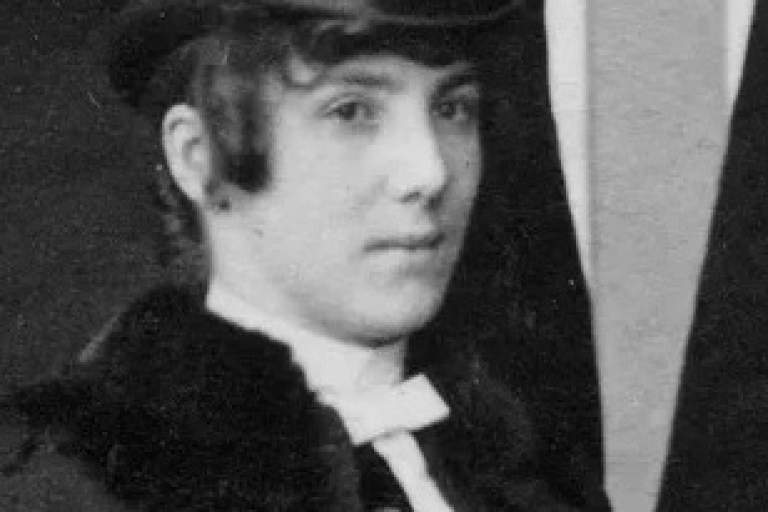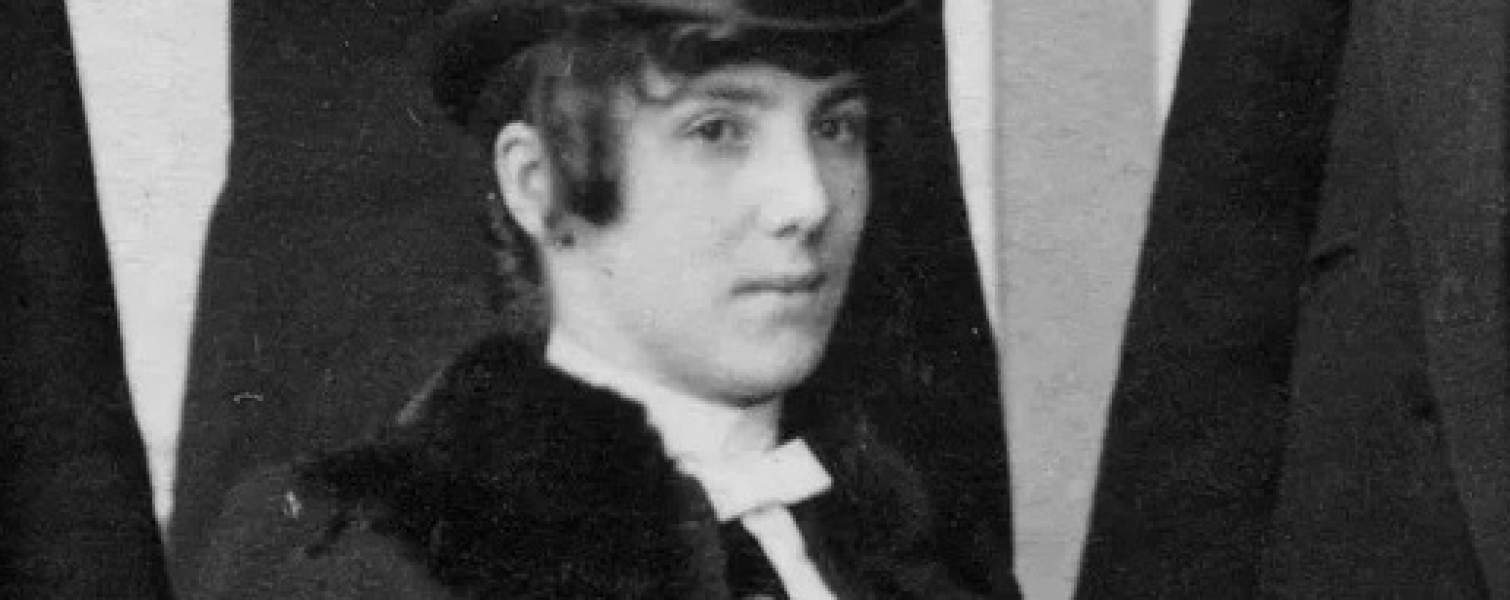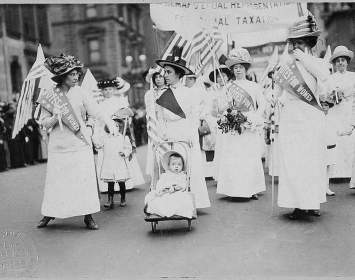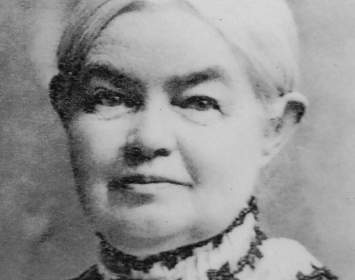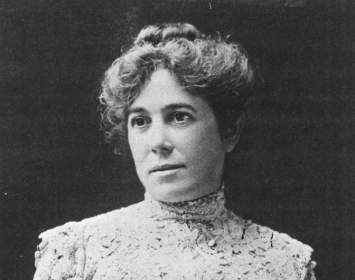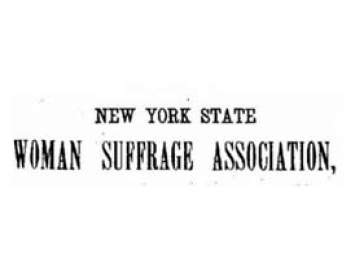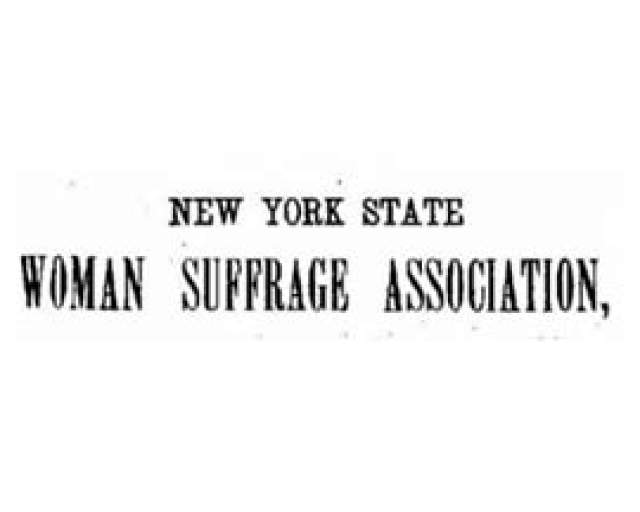The forty-third annual convention of the New York State Woman Suffrage Association (NYSWSA) was held at Ithaca on Tuesday through Friday, October 31–November 3, 1911. Approximately 200 women delegates attended the convention.
From 5:00 to 7:00 p.m. on Tuesday, October 31, a reception was given by the Political Study Club of Ithaca at the mansion of Juanita Breckinridge Bates (1860–1946), a locally prominent suffrage campaigner.
The Bates Story. Juanita Breckinridge was the first woman to receive a Bachelor’s of Divinity degree and be ordained as a Congregationalist minister. (The denomination changed its policy to admit women into ministry as a result of considering her application.) On June 28, 1892, she was ordained at Brookton, New York, and appointed to succeed minister and suffragist Annis Ford Eastman as pastor of Brookton Congregational Church. (Brookton, now Brooktondale, is a hamlet seven miles southeast of Ithaca.)
Breckinridge met Town of Ithaca Supervisor Frederick Bates, who courted her to the degree that he could given that both were public figures. Further complicating any attempts at courtship was the novelty of Breckinridge's status as a woman minister, which placed her under extraordinary public scrutiny in and around Ithaca. In 1893, Breckinridge resigned from Brookton. She made a trip to the Midwest and visited the World's Columbian Exposition at Chicago. Apparently Fred Bates rendezvoused with her there; away from the curious eyes of Ithacans, the couple married in Rock Island, Illinois. The couple then made a brief tour of Europe. Late in 1894 (apparently after the NYSWSA's first convention in Ithaca, held in November of that year), the couple moved into a mansion at 310 North Aurora Street. As Frederick was wealthy, the home was famously opulent, including a Louis XVI parlor styled by Ithaca architect William Henry Miller. Juanita threw herself forcefully into suffrage and other reform work, frequently opening her home as a center for woman’s-rights activism. (Nineteenth-century practice was to use the singular, woman's; later practice was to use the plural, women's.)
Four years after the Ithaca conference, in 1915, a woman suffrage amendment would narrowly fail in the New York State legislature. (It would succeed two years later, empowering women to vote in New York elections three years before national suffrage was enacted in 1920.) Vowing to continue the fight after the bruising loss in 1915, Bates penned what would become her best-remembered statement: "Suffrage has fallen, but it has fallen forward."
Frederick Bates died in 1922. Juanita took over management of his substantial estate and continued her woman's-rights work. She died at Ithaca on June 11, 1946. She was buried in Ithaca's Lake View Cemetery.
The Building and Site. Unfortunately, no images of the Bates mansion are known to exist. The structure was apparently razed and replaced in the 1960s by a nondescript professional building housing an accounting firm and a title company.
Thanks to Patricia Longoria for research assistance.
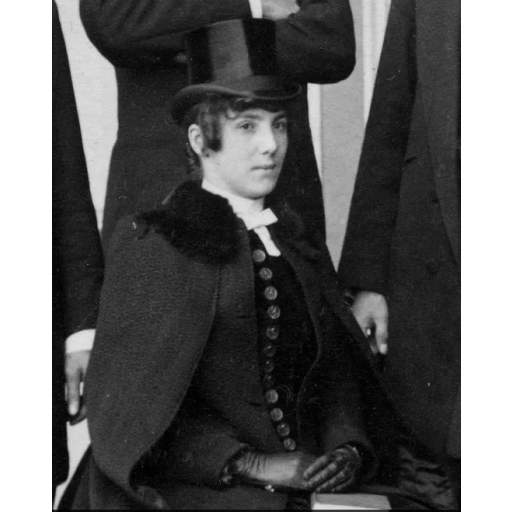
Juanita Breckinridge Bates, 1915 Photo
Juanita Bates looks remarkably youthful in this photo dated to 1915, when she was aged 55.
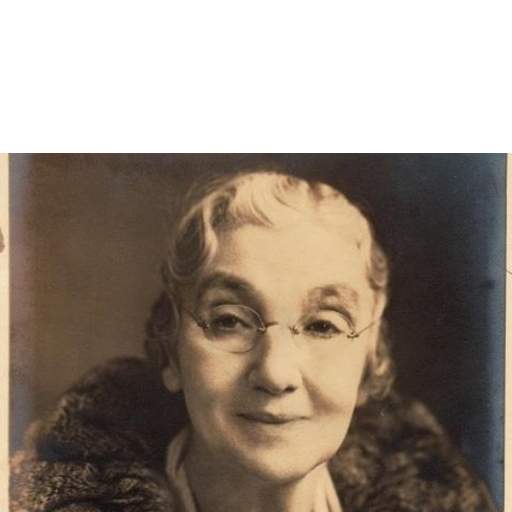
Juanita Breckinridge Bates Later in Life
This undated photograph depicts Juanita Bates when more advanced in age. She was 85 or 86 at the time of her death.
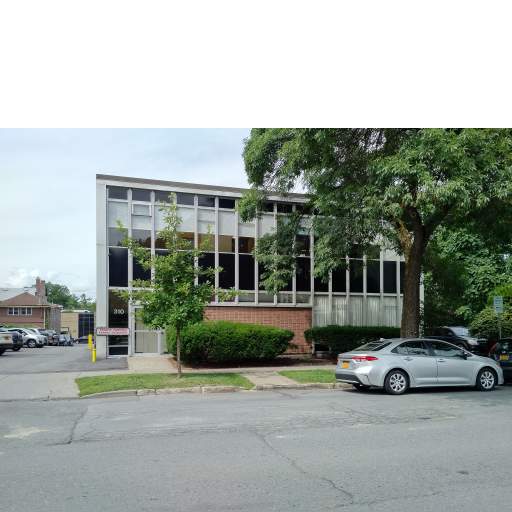
Bates Home Site Today
The Bates home site is now occupied by this professional building that appears to date from the 1960s. No images of the Bates mansion are known to exist.
Associated Causes
Associated Historical Events
Forty-Third NY State Suffrage Convention
October 31–November 3, 1911
